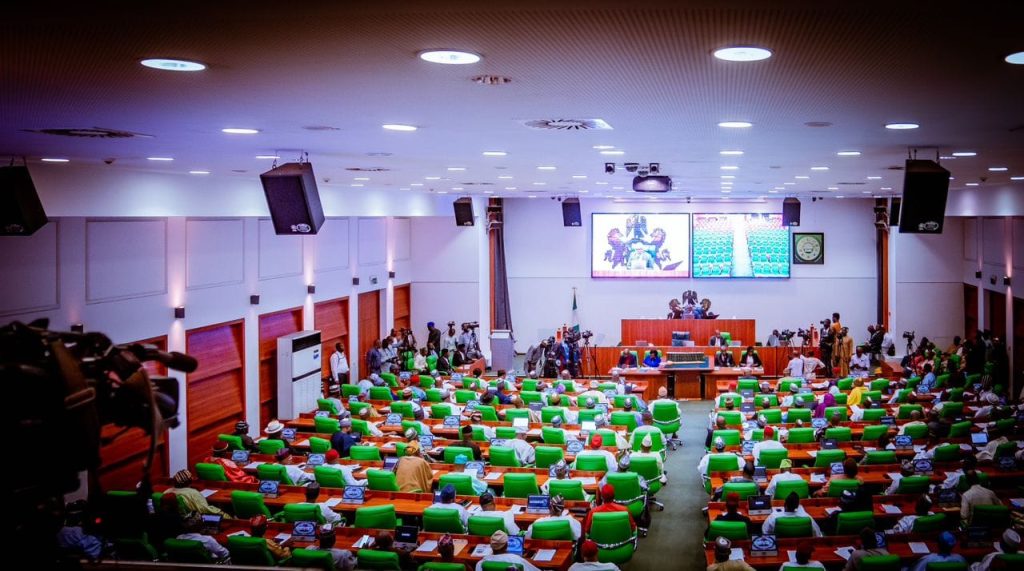The political landscape of Rivers State has been embroiled in a deep crisis, leading to the unprecedented declaration of a six-month state of emergency by President Bola Tinubu in March 2025. This drastic measure followed a protracted power struggle between Governor Siminalayi Fubara and the State House of Assembly, both of whom were subsequently suspended by the President. To navigate this tumultuous period and ensure the continuation of governance, Vice Admiral Ibok-Ete Ibas (retd) was appointed as Sole Administrator, a move ratified by both houses of the National Assembly. Adding another layer of oversight, a 21-member Ad-Hoc Committee of the House of Representatives was established to monitor the situation and ensure adherence to the rule of law. However, despite a formal inauguration, the committee’s function and mandate remained shrouded in ambiguity, adding to the complexity of the unfolding situation.
The inauguration ceremony, presided over by House Speaker Tajudeen Abbas, marked the official commencement of the committee’s work. Professor Julius Ihonvbere, House Leader, was appointed as Chairman of the Ad-Hoc Committee, tasked with overseeing the intricate transition and governance of Rivers State under emergency rule. However, initial interactions with committee members revealed a lack of clear directives and operational guidelines. Several members expressed their uncertainty regarding the specific modalities and rules of engagement, indicating a gap between the formal inauguration and the practical commencement of their duties. This initial ambiguity raises questions about the preparedness and effectiveness of the committee in navigating the complexities of the political crisis in Rivers State.
The apparent lack of clear direction was further corroborated by an anonymous committee member who described the inaugural meeting as largely ceremonial. According to this member, the meeting primarily served as a platform for introductions and the Speaker’s address, lacking substantive discussions about the committee’s mandate or operational procedures. This account suggests the committee, though formally inaugurated, is yet to define its practical approach to overseeing the administrative affairs of Rivers State. The lack of clarity raises concerns about the committee’s ability to effectively monitor the situation and contribute to a timely and stable restoration of democratic governance in the state.
Speaker Abbas, during the inauguration, emphasized the temporary nature of the Sole Administrator’s role, stressing the importance of adhering to the Constitution and reporting to the National Assembly. He drew parallels with previous emergency interventions in Plateau, Ekiti, and the North-Eastern states of Borno, Yobe, and Adamawa, highlighting the constitutional basis for the National Assembly’s involvement in such situations. The Speaker underscored the committee’s responsibility to ensure the caretaker administration operates within the confines of the law, protects public interest, and facilitates the return to full democratic governance. This explicit articulation of the committee’s mandate, juxtaposed with the apparent lack of briefing for the members, underscores the disconnect between the overarching objectives and the practical execution of the committee’s duties.
Abbas stressed the importance of impartiality and non-partisanship in the committee’s operations, emphasizing that the intervention in Rivers State was a constitutional necessity, not a tool for political retribution. He urged the committee to maintain the highest ethical standards and operate strictly within the constitutional framework. This call for impartiality and adherence to the rule of law serves as a crucial reminder of the delicate balance the committee must strike between oversight and ensuring a smooth transition back to democratic governance. The success of the committee’s mission heavily relies on its ability to navigate the complex political landscape of Rivers State with neutrality and transparency, avoiding perceptions of bias or political influence.
Despite the uncertainties surrounding the committee’s operational guidelines, Professor Ihonvbere, the Chairman, expressed confidence in the committee’s capacity and readiness to fulfill its mandate. Highlighting the diverse expertise and experience within the committee, he assured the Speaker and the nation that they would carry out their duties diligently and impartially. This declaration of commitment, alongside the Speaker’s strong emphasis on non-partisanship, sets a crucial tone for the committee’s operations. However, the true test of the committee’s effectiveness lies in its ability to translate these commitments into tangible actions, addressing the practical challenges and political complexities of the situation in Rivers State. The absence of James Faleke, the South West representative, further complicates the situation as the committee will commence operations lacking the full representation intended by its composition.














